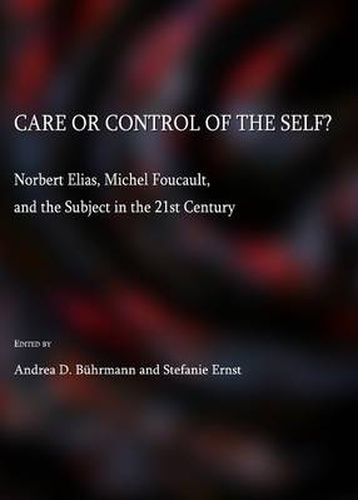Readings Newsletter
Become a Readings Member to make your shopping experience even easier.
Sign in or sign up for free!
You’re not far away from qualifying for FREE standard shipping within Australia
You’ve qualified for FREE standard shipping within Australia
The cart is loading…






The beginning of the 21st century is characterized by fundamental societal changes: in addition to changing demographics and the globalization of economic flows, the transformation of an industrial-Fordistic society to a non-industrial service society is significant. For more than twenty years, these large-scale trends and their inherent chances and risks have been the topic of vivid discussions in all the social sciences. Keywords are ‘risk-society’, ‘post-industrial society’, ‘knowledge-society’ and ‘information-society’. The implications of these developments are also reflected in the challenge to the traditional, hegemonic and rational understanding of subjectivity. Against the background of these great social changes, several factors indicate that the forms of self-regulation or self-governance are also being transformed. A one-sided consideration of the homo economicus and its varieties would underestimate, for example, certain non-rational forms of self-perception and self-reflection, as well as non-rational practices of self-management and subjectivation. The aim of this anthology is to discuss the question, to what extent the relationship to oneself (its regulation with respect to its governance) and the relationship towards others in (post-)modern societies are being transformed. The perspective of Norbert Elias’ process sociology as well as Michel Foucault’s post-structural theory seem especially promising, as they appear to have been the first researchers consistently and convincingly analysing the ‘nature’ of the individual by reflecting upon its long-term historical process of transformation. Both have different visions but similar concerns: they deal with structures of control that exist within society and within the individual.
$9.00 standard shipping within Australia
FREE standard shipping within Australia for orders over $100.00
Express & International shipping calculated at checkout
The beginning of the 21st century is characterized by fundamental societal changes: in addition to changing demographics and the globalization of economic flows, the transformation of an industrial-Fordistic society to a non-industrial service society is significant. For more than twenty years, these large-scale trends and their inherent chances and risks have been the topic of vivid discussions in all the social sciences. Keywords are ‘risk-society’, ‘post-industrial society’, ‘knowledge-society’ and ‘information-society’. The implications of these developments are also reflected in the challenge to the traditional, hegemonic and rational understanding of subjectivity. Against the background of these great social changes, several factors indicate that the forms of self-regulation or self-governance are also being transformed. A one-sided consideration of the homo economicus and its varieties would underestimate, for example, certain non-rational forms of self-perception and self-reflection, as well as non-rational practices of self-management and subjectivation. The aim of this anthology is to discuss the question, to what extent the relationship to oneself (its regulation with respect to its governance) and the relationship towards others in (post-)modern societies are being transformed. The perspective of Norbert Elias’ process sociology as well as Michel Foucault’s post-structural theory seem especially promising, as they appear to have been the first researchers consistently and convincingly analysing the ‘nature’ of the individual by reflecting upon its long-term historical process of transformation. Both have different visions but similar concerns: they deal with structures of control that exist within society and within the individual.